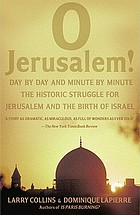 Just Mercy
by
Bryan Stevenson
Just Mercy
by
Bryan Stevenson
The best nonfiction leisure read I’ve had in years – a big-hearted and inspiring book. _Just Mercy_ is about the Equal Justice Initiative (EJI), a Montgomery (Alabama)-based nonprofit devoted to criminal-justice reform, especially for wrongly convicted, inadequately represented, and unjustly sentenced victims of the U.S. culture of mass incarceration. The book’s main narrative is that of Walter McMillan, an African American man who was initially sentenced to death for a crime that included no evidence against him, and that he could not have committed because he was at a fish fry with dozens of witnesses. His sentence was later converted to death in prison (more commonly known, not a little euphemistically, as "life in prison") until the EJI finally won his exoneration after twenty-five years. This narrative is interwoven with other groups of case-studies organized around themes of justice for mentally challenged individuals unconstitutionally tried and sentenced, justice for children tried and sentenced as adults, and justice for women wrongly accused of infanticide and unjustly sentenced because law enforcement responded to media pressure rather than the pursuit of justice. Stevenson comments on these narratives with infinite compassion and wisdom: “Maybe if we [acknowledged our weaknesses and fears] we . . . would look harder for solutions to caring for the disabled, the abused, the neglected, and the traumatized” (291); “fear and anger are a threat to justice; they can infect a community, a state, or a nation and make us blind, irrational, and dangerous. . . . mass imprisonment has littered the national landscape with carceral monuments of reckless and excessive punishment and ravaged communities [because of] our hopeless willingness to condemn and discard the most vulnerable among us. . . . [M]ercy is just when it is rooted in hopefulness and freely given” (313-14).
-- Michael Cooper, Music Dept.


 Mississippi to Madrid
by
Mississippi to Madrid
by
 Pensees
by
Pensees
by
 O Jerusalem!
by
O Jerusalem!
by